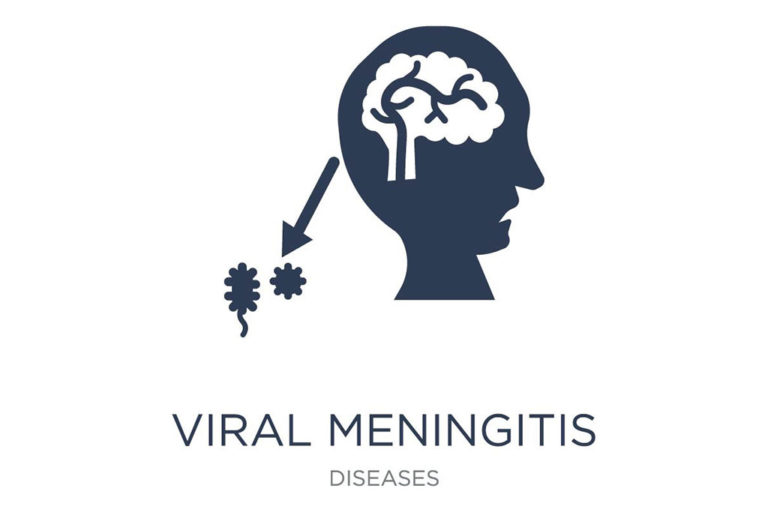- Who is at risk for viral meningitis? Viral meningitis can affect all ages including newborns.
- What is the most common way viral meningitis develops? Viral meningitis is an infection of the meninges which is essentially the lining that contains the brain and spinal cord. There are various viruses that can cause this infection. The most common group of viruses that cause these infections, enterovirus, is typically transmitted by the fecal-oral route. However, it can also be spread by respiratory droplets. Although less common, there is a group of viruses that can cause meningitis that is spread by insects (most commonly mosquitoes and ticks). Flu, chicken pox, and herpes are also potential causes for meningitis.
- What symptoms should parents watch for if they are concerned about viral meningitis?The symptoms of meningitis varies depending on the age of the child. In an infant, the symptoms are often fever, poor feeding, irritability/fussiness, or vomiting. In an older child, the symptoms are typically fever, headache, nausea/vomiting, stiff neck or light sensitivity.
- Why is viral meningitis something parents should know about? The symptoms of viral meningitis are very similar to those of bacterial meningitis. As doctors, we need to do testing to determine whether a patient has bacterial versus viral meningitis. Bacterial meningitis is a very serious and often fatal disease that is caused by bacteria and requires prolonged IV antibiotics for treatment. Viral meningitis, just as in other viral infections, often only needs supportive care and time to resolve; however, there are some cases in which an infant or child will need to be treated with antiviral medication. Because of the similarities in how these patients present, patients need to seek medical attention if there is a concern for possible meningitis.
- What should parents do if they suspect their child has meningitis? The most important thing to do is to seek medical attention as soon as possible. The symptoms of meningitis are similar to other infections and your doctor will evaluate your child for signs of meningitis on his or her exam. If your doctor is concerned about meningitis based on the exam, he/she will then order further lab tests. Patients with suspected meningitis are most often hospitalized so that they can be monitored and treated.
- What is the best way to prevent meningitis? Good hand hygiene is one the best protections for infections including viral meningitis. It is also important that your child’s vaccines are up to date, including his or her yearly flu vaccine to help protect them. There are 2 childhood vaccines, Hib and Prevnar, and 2 vaccines given in adolecesnce, Menactra and Meningitis B, that prevent against bacterial causes of meningitis. There are no vaccines for viral causes of meningitis. During the summer months, I recommend personal protection from insect bites including long-pants, long sleeves and insect repellent as needed on exposed skin for children older than 2-3 months.
Amanda Jones, MD

